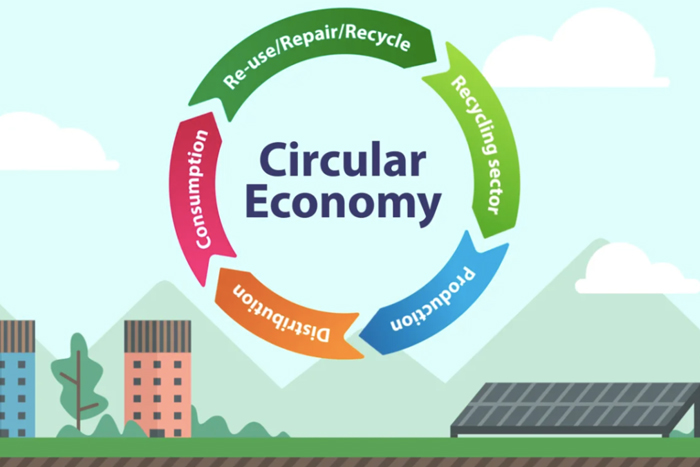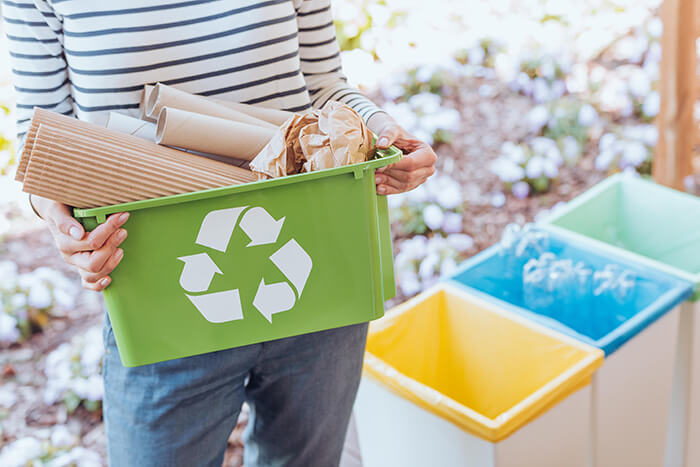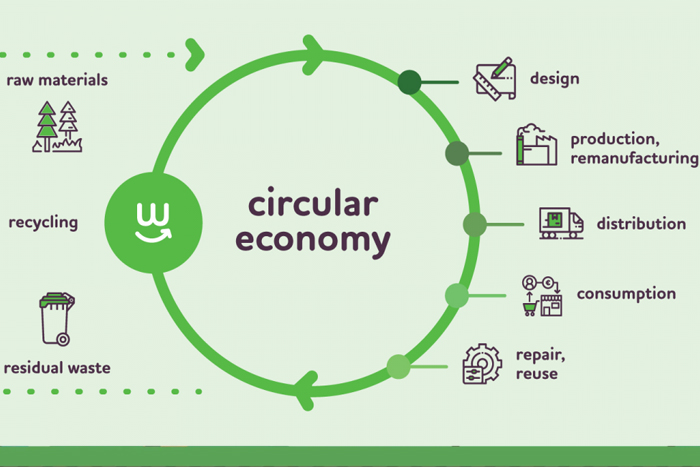Vietnam has been gradually transforming into a circular economy
Vietnam has been gradually transforming into a circular economy. The circular economy is based on a three-pillar system involving the “make-use-recycle” model, which promotes waste reduction and lowers resource extraction through recycling, reducing, and reusing.

The concept of a circular economy treats used plastics as valuable material resources to be recycled rather than as waste to be discarded. This is highly favorable to promote sustainable development as it introduces an opportunity for Vietnam to scale up recycling and other plastic circularity efforts.
Plastic and waste management situation in Vietnam

As an emerging industrial hub with accelerating economic growth, Vietnam has severe environmental issues, particularly in waste management and plastic pollution. The total volume of waste each year in the country is approximately about 25.5 million tons, of which 75 percent goes into landfills.
According to the World Bank, Vietnam is among the top four generators of plastic waste, at 280,000 tons per year. The pandemic has exacerbated this situation following the increased usage and disposal of facemasks, sanitizer bottles, and e-commerce packaging.
To tackle the situation and towards a sustainable economy, the government has been deploying long-term action plans and setting ambitious recycling targets.
National action plans and strategies

Conscious of growing marine pollution, Vietnam has launched a national action plan for the management of marine plastic litter, aiming to reduce 75 percent of Vietnam's marine plastic debris by 2030. By then, the country strives to eliminate the use of single-use plastics and non-biodegradable plastic bags from all coastal tourism areas. Meanwhile, all protected marine areas should be free of plastic litter.
The government has also demonstrated a strong dedication to tackle sustainable development and climate change at the Conference of the Parties (COP26) with its commitment to achieving net-zero carbon emissions by 2050.
More recently, Vietnam's Deputy Prime Minister Le Minh Khai signed Decision 687 approving the national development plan on a circular economy in June.
Particularly, the plan highlights the importance of increasing the awareness and investment of domestic and foreign enterprises and investors in the circular economy as an approach to successfully adopting a circular economy model.
The plan itself has also been discussed in the recent kick-off conference organized by the Ministry of Natural Resources and Environment, where government leaders, development partners, ambassadors, and experts announce their strengthened cooperation while sharing successful models, concepts, and approaches to a circular economy.
Building on the launch of the National Plastic Action Partnership, the revised LEP, and other plastic pollution reduction actions, this plan continues to be one of the efforts made by the country to incorporate a circular economy across its industries.
What does it mean for businesses? Opportunities

Encouraging plastic recycling in businesses is expected to mobilize increased private sector investment to help address plastic pollution while supporting key industries such as tourism, shipping, and fisheries.
The circular economy also presents four benefits for businesses' sustainable development which are resource efficiency, environment protection, economic development, and social benefits.
Challenges
To comply with the law, Vietnam's manufacturers and producers will now have to register recycling plans and report recycling results annually to the Ministry of Natural Resources and Environment. Local and foreign-invested companies are also advised to prepare recycling plans and budgets for EPR accordingly to address new requirements imposed by the new law.
However, transforming into a circular economy requires a rigorous regulatory framework that allows all economic sectors to apply the model in their production from manufacturing to consumption and waste management.
With increasing government policies and raising awareness of businesses and the community, Vietnam is set to become a competitive leader in pursuing sustainable economic development.




